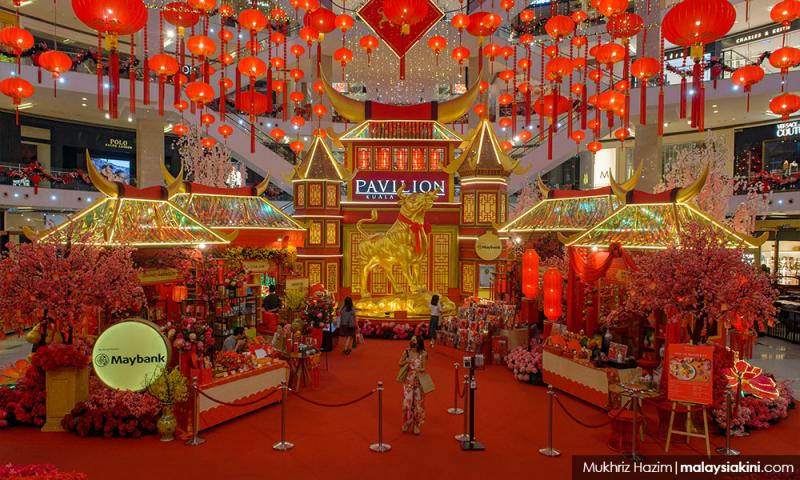LETTER | Lunar New Year or Chinese New Year?
LETTER | The delightful, ecstatic, and traditional festival, Lunar New Year has finally arrived. During this significant festival, we celebrate with our dearest family and friends. It is undeniably a festival that emphasises togetherness.
Little do we know, “Chinese New Year” is a Chinese-centric term. However, this festival is not only reserved for the Chinese but also for the Vietnamese, Korean, and Japanese. This festival was spread to Vietnam, Japan, and Korea due to the Tang movement during the Tang dynasty in China.
“Lunar New Year” may sound like a more neutral phrase to use. The Rural Calendar, which originated from China, was lunisolar (the calendar which is gauged based on the movement of the moon as well as the sun), not a lunar calendar.
However, there are no people who call this festival “Lunisolar New Year”. Some experts argue that Lunisolar New Year is not an accurate name to use as well. Therefore, we might be able to use one neutral name, which is “Lunar New Year”.
We should not call this festival “Tahun Baru Cina” in Bahasa Melayu as well. As we can observe, the Lunar New Year open houses welcome every race in Malaysia to participate. This festival does not belong to Chinese people only, but also to other Malaysian compatriots. We ought to adopt “Tahun Baru Imlek” from Bahasa Indonesia to refer to this festival as this name is more ethnically neutral.
Malaysian Chinese have trouble with using the local name or China’s name to name this festival too. Some Malaysian Chinese are happy to bring in China’s name "Spring Festival" to refer to the Lunar New Year.
However, the ancestors of Malaysian Chinese people do not call it Spring Festival but "Agricultural Calendar New Year" or literally "New Year" instead. It would be more reasonable to localise our vocabulary. We could say New Year in Hokkien or Teochew.
According to "Cihai", the most trusted large-scale dictionary and encyclopedia of Standard Mandarin Chinese, it is called "the first month of the lunar new year". In this video, we can see Thailand still uses the Teochew greeting "Happy Lunar New Year" on their notice board.
Moreover, Singapore and Malaysia do not have four seasons. It does not fit the national conditions if we say Spring Festival. There are many Chinese festivals in the spring season also. Thus it will cause ambiguity when we say Spring Festival.
The Chinese festivals in the spring season, other than the Lunar New Year, also include Chap Goh Mei, Longtaitou Festival, Birthday of the Flowers, Double Third Festival, Tomb-Sweeping Day, and Cold Food Festival. Therefore, we should not misuse the name “Spring Festival” to refer to the “Lunar New Year”.
Some people even import the name "New Spring" from China as well. It was the name used in "Dream of the Red Chamber", an ancient Chinese novel. Nonetheless, it is not a local Singaporean or Malaysian Chinese vocabulary.
As the saying goes, "New Year matters the most". According to the sexagenary cycle, also known as the Stems-and-Branches, the lunar calendar is composed of heavenly stems: Jia, Yi, Bing, Ding... (10 heavenly stems); earthly branches: Zih, Chou, Yin, Mao, Chen...(12 earthly branches), they sum up a total of sixty years for one cycle.
After New Year's Eve, the first day would be to "remove the old and welcome the New Year". After the Chinese Communist Party came to power in China, the traditional name "New Year" was changed to "Spring Festival".
However, the term "Spring Festival" is unremarkable and it simply fails to highlight the tradition and grand atmosphere of the "New Year". Not only that, the stories of "Nian Gao" (Year Cake) and "nian beast" all demonstrate the importance of "nian" (year). So, should English also replace Lunar New Year with Spring Festival?
In a nutshell, in addition to localising the name of the festival, it must also be de-politicised and de-racialised.
The views expressed here are those of the author/contributor and do not necessarily represent the views of Malaysiakini.
RM12.50 / month
- Unlimited access to award-winning journalism
- Comment and share your opinions on all our articles
- Gift interesting stories to your friends
- Tax deductable
